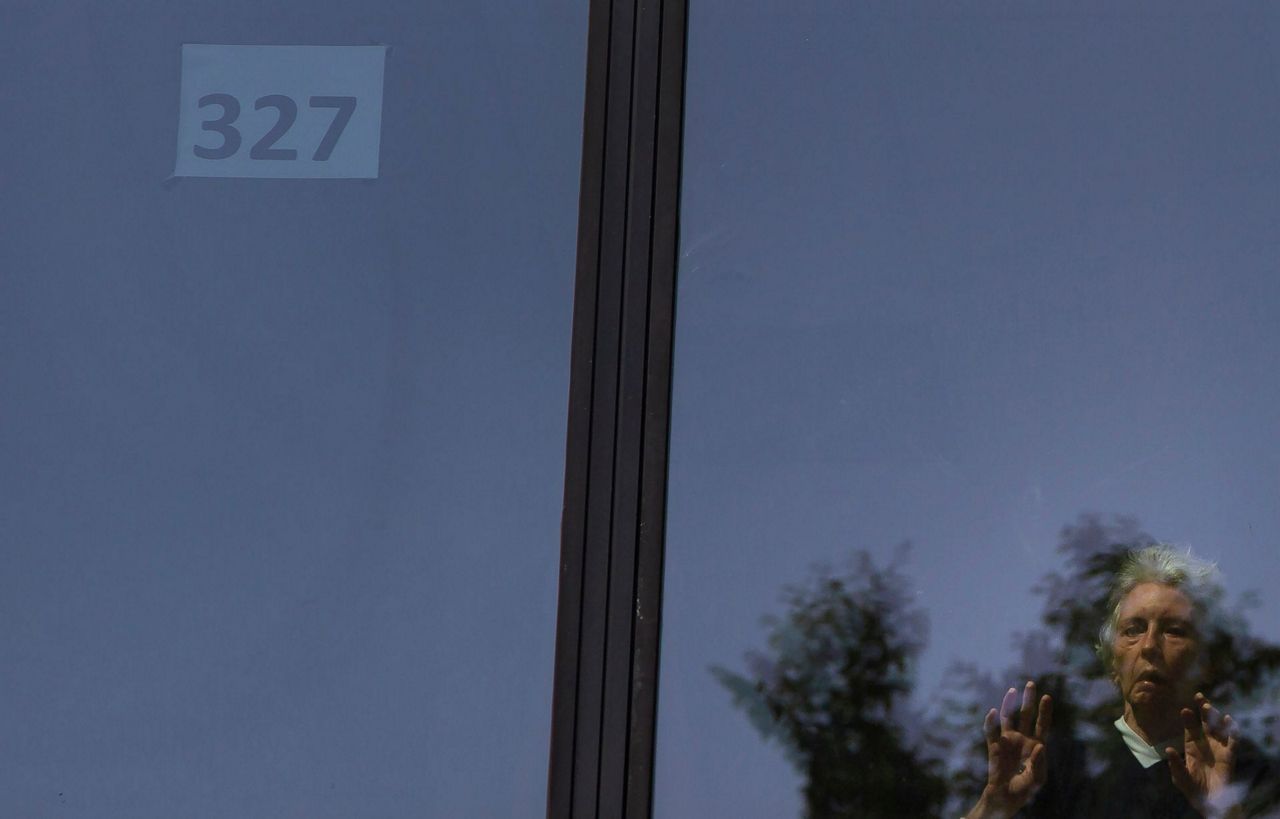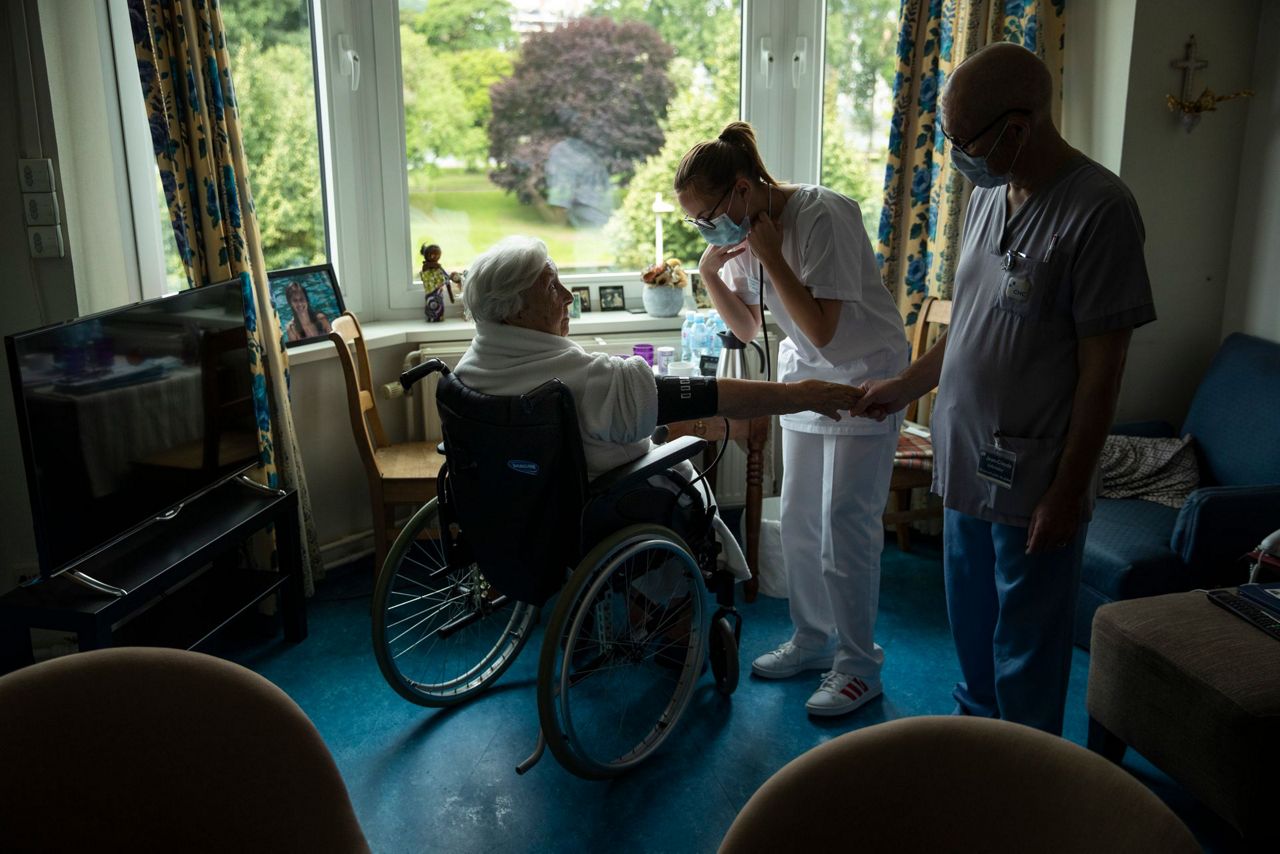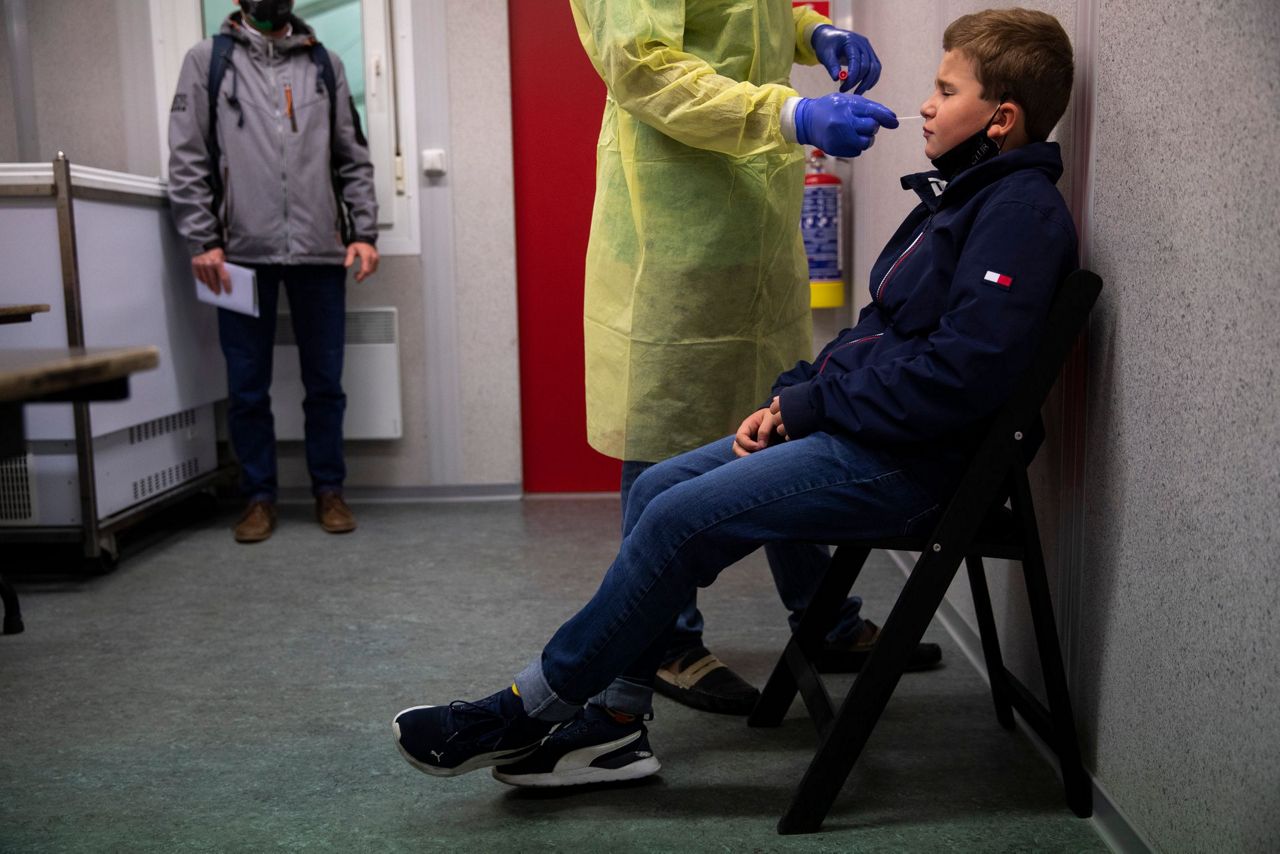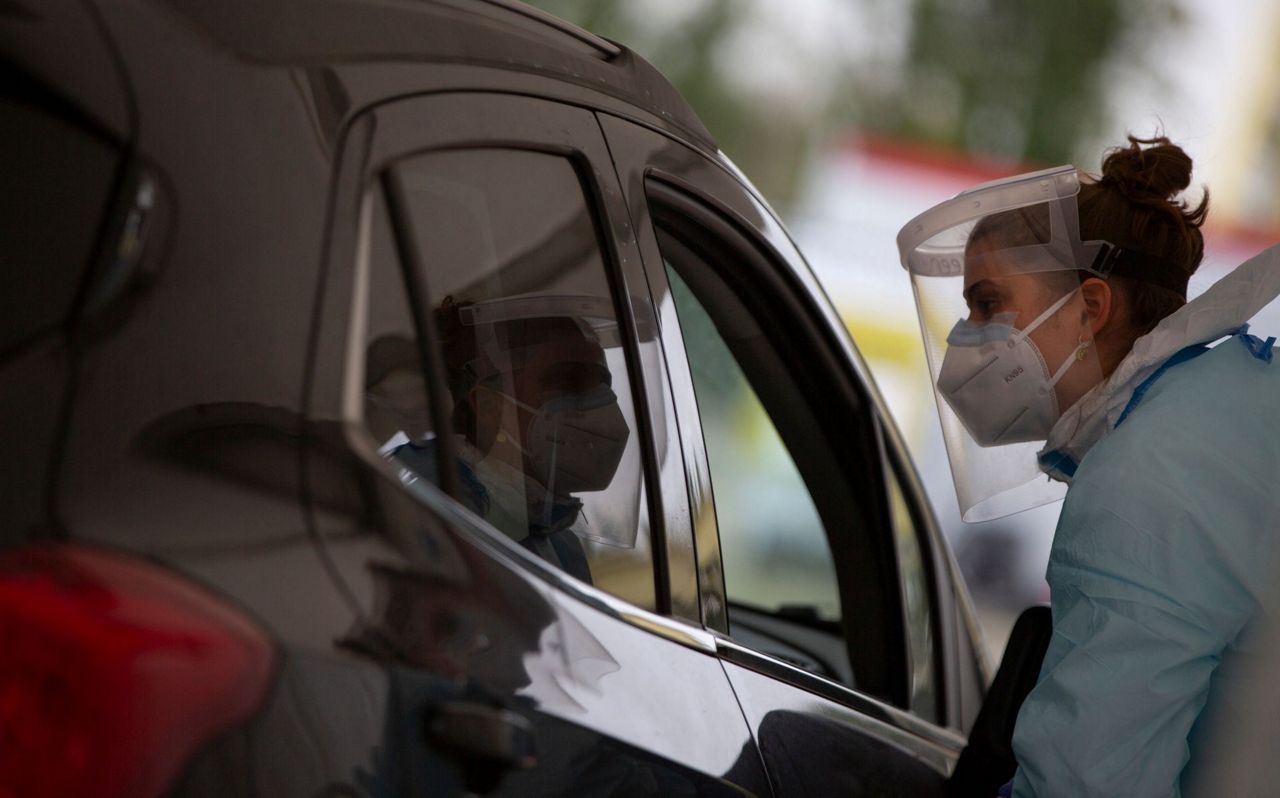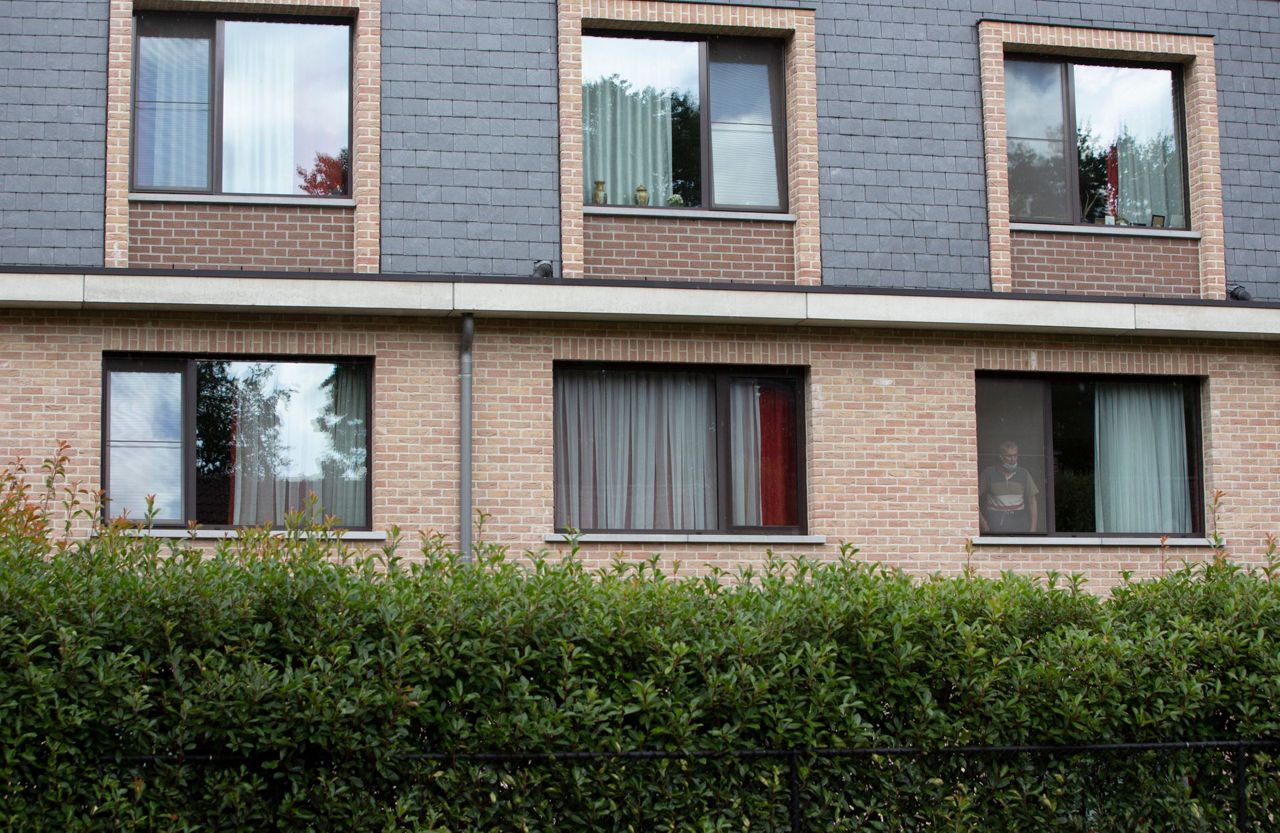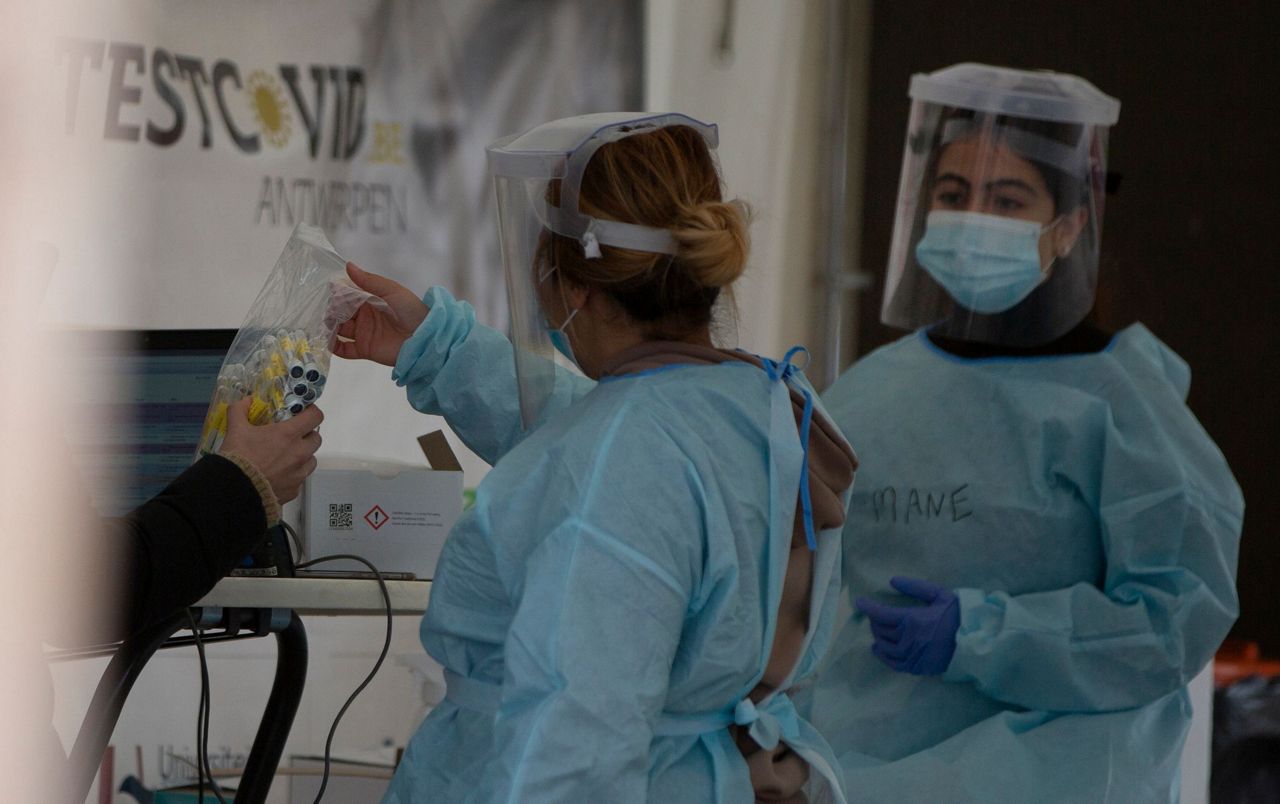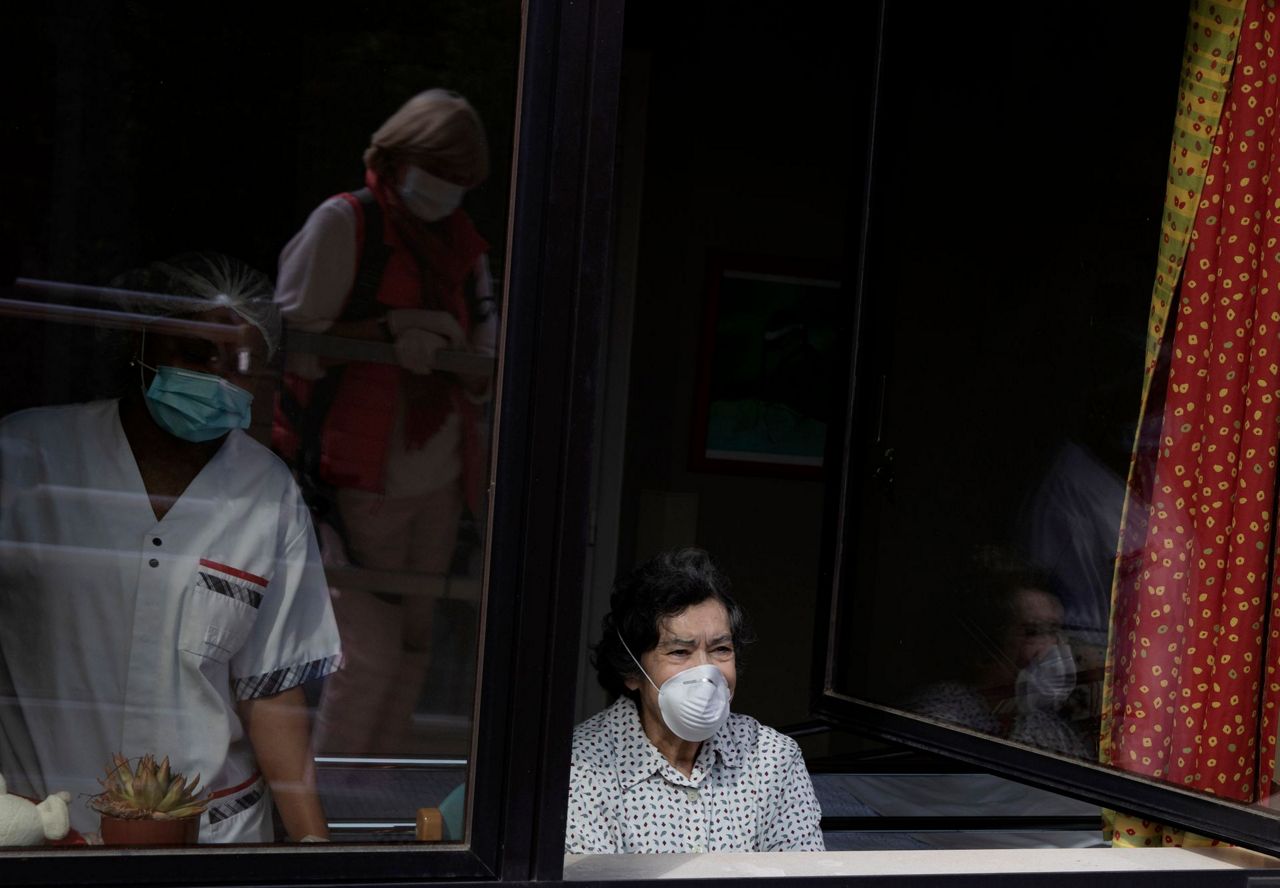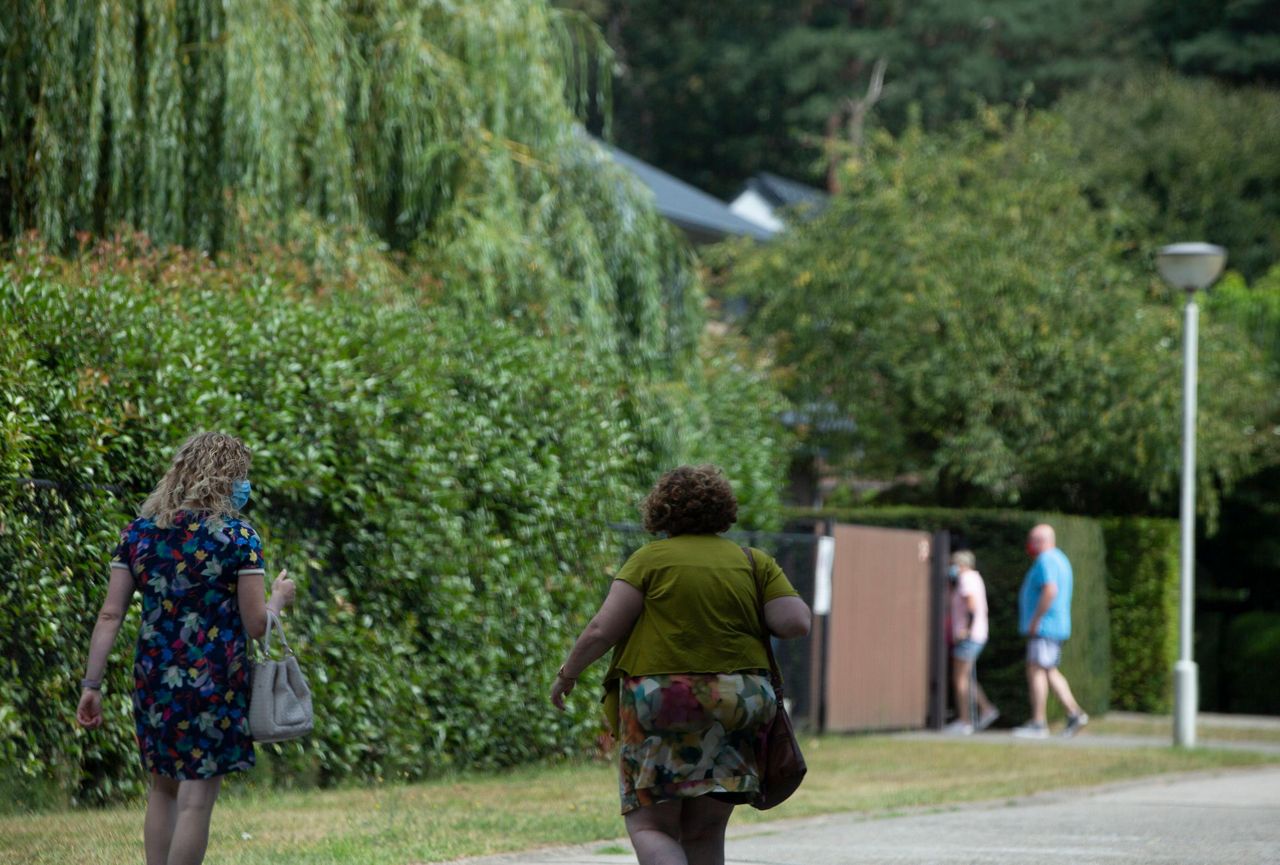BRUSSELS (AP) — Authorities in Belgium fear another deadly wave of coronavirus cases could soon hit care homes as the country confronts the risk of seeing its hospitals overwhelmed by COVID-19 patients, leading them to restrict nursing home visits.
The country of 11.5 million inhabitants recorded half of its COVID-19-related deaths in such homes during the spring wave of the pandemic. Amid a new surge in confirmed cases, new infections have been growing at an alarming rate in Belgian eldercare facilities.
In the Dutch-speaking region of Flanders infections in care homes have risen by 51% and the number of deaths has doubled in the past week, according to local media quoting figures by the Flemish Agency for Care and Health.
Care home employees worked during the pandemic's earlier peak with a shortage of tests, masks and protective equipment. They are now better equipped, but to keep the virus at bay, nursing home visits will now be limited until the curve of the current outbreak in Belgium flattens.
Vincent Frédéricq, the general secretary of the rest homes federation, said only the same two people will be allowed to visit a home resident for a 15-day period. For the following two weeks, residents will be allowed to replace their visitors with two different people.
The permitted visitors will be required to wear masks and to keep safe distance from the people they are visiting.
“It can be a bad experience for some people, but the situation in the country is serious, and we have to be careful," Frédéricq told RTL media.
In the French-speaking Wallonia region of southern Belgium, nursing homes employees will be tested every week until the end of the year. The regional health minister, Christie Morreale, also announced more financial support for the homes and said extra staff will be recruited.
Belgium has reported more than 240,000 confirmed virus cases and more than 10,000 deaths during the pandemic. After keeping infections in check over the summer, the Belgian government said the country's health situation is now one of the worst in Europe.
As of Wednesday, 2,969 COVID-19 patients were hospitalized, including 486 in intensive care. Authorities have warned that intensive care units will hit their capacity of 2,000 beds by mid-November if new cases continue to soar at the same pace.
In an interview with The Associated Press, the head of the emergency room at Liege hospital said his service is reaching saturation point.
“We currently have five hospital wards," Stephane Degesves said. “We have 100 patients who are hospitalized in our COVID units and 21 who are in intensive care. Today we’ve had to transfer patients to other provinces, which we never did during the first crisis. So we’re in overdrive."
While younger people account for most of Belgium's current cases, more than 700 infections were registered last week among people over age 90, compared to 300 the previous week, said COVID-19 crisis center spokesman Yves Van Laethem.
The exponential infection growth rate has created day-long lines at testing centers, prompting the government to stop testing people who do not show COVID-19 symptoms. Health authorities said testing priority will still be given to new residents in care homes and people over age 65 in other care institutions.
The Belgian government last week introduced more restrictive measures including a night-time curfew as well as closing restaurant and bars for a month. But many health experts think the restrictions won't be enough to contain the new wave of cases and pleaded for the reintroduction of a national lockdown.
“We should not ask ourselves what should be closed; we should ask ourselves what can stay open," virologist Emmanuel Andre told Belgian broadcaster RTBF on Wednesday. He warned that Belgium would be “heading for disaster" without stricter limits.
“Today, it's easier to decide because we don't have the choice anymore," Andre said. “A lockdown is necessary. It's the only option left."
___
Mark Carlsson in Liege, Belgium, contributed to this story.
___
Follow AP's pandemic coverage at http://apnews.com/VirusOutbreak and https://apnews.com/UnderstandingtheOutbreak
Copyright 2020 The Associated Press. All rights reserved. This material may not be published, broadcast, rewritten or redistributed without permission.



